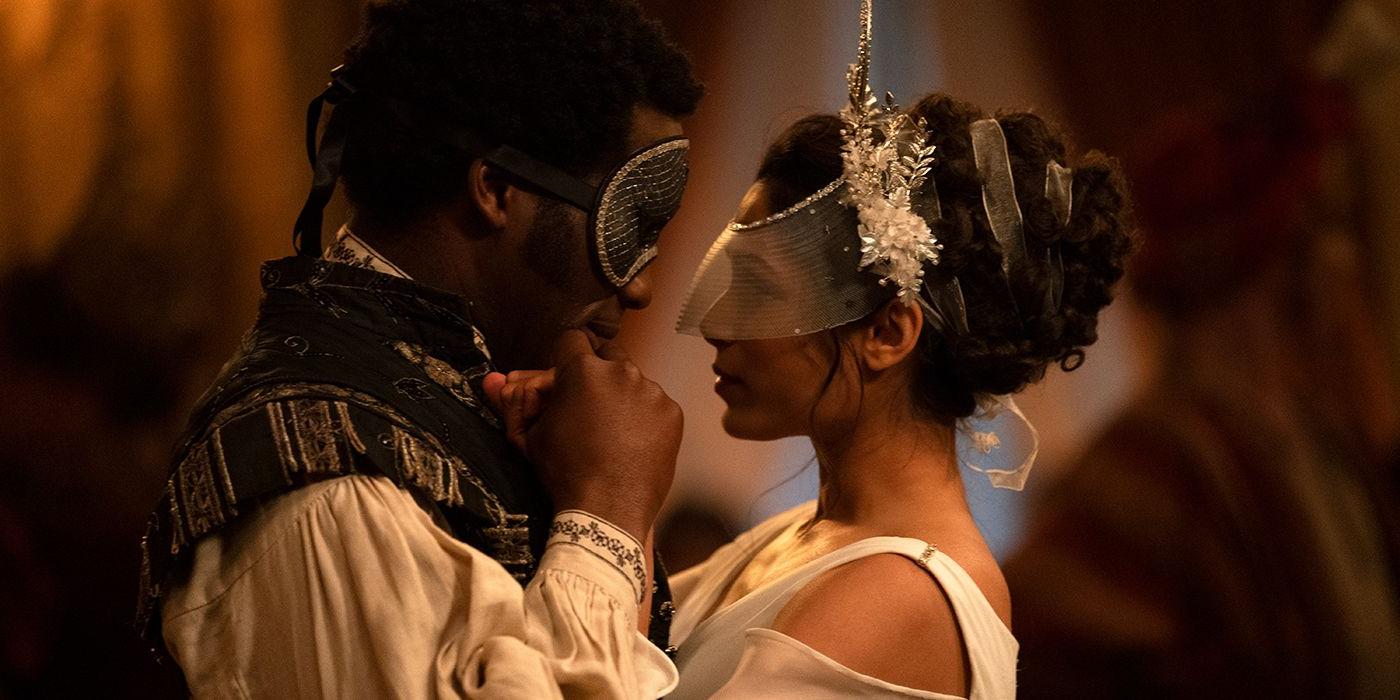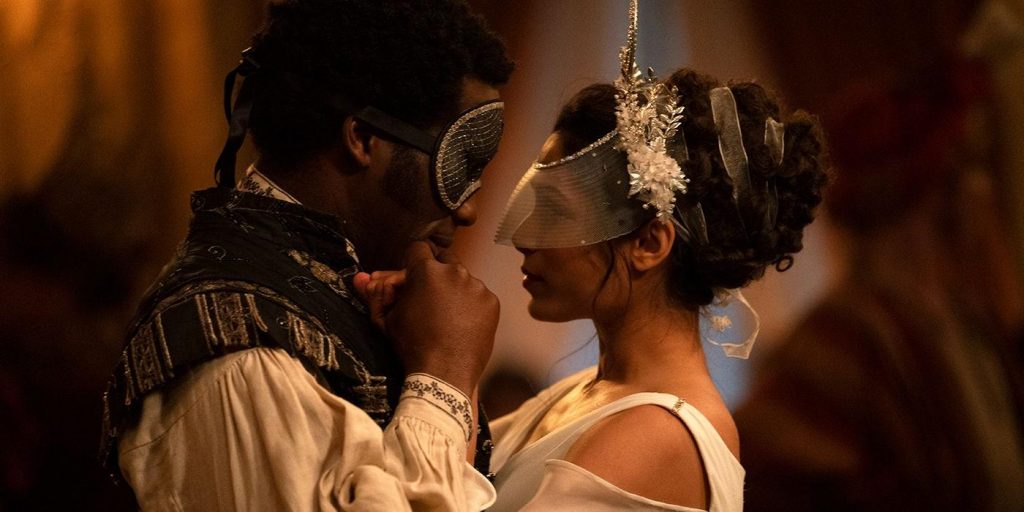

Like a discount brand or the best kind of knock off which no one is in danger of mistaking for the original but will do in a pinch to expand the menu or feed a crowd, Mr. Malcolm’s List is a tastefully silly Jane Austen style romantic comedy.
Enjoyable and energetic, there is almost nothing unpredictable about it, and it almost entirely doesn’t matter.
This is probably due in large part to strong, spirited performances across the board.
Zawe Ashton plays Julia Thistlewaite, a young lady of means who finds herself embarrassingly jilted by the most eligible bachelor of the season, Mr. Malcolm (Sope Dirisu). Her somehow airy yet portentous demeanor steals the show as she plots her tempest in a teacup sort of revenge.
That is, when she discovers the reason for her rejection, that she failed to measure up to all the criteria on Mr. Malcolm’s list of required wifely characteristics, she enlists the aid of a less well to do childhood friend, Selina Dalton (Freida Pinto), to turn the tables on Mr. Malcolm.
Together they conspire to present her as his ideal woman who will subsequently reject him on the basis of her own list.
He is charming, she is beautiful and articulate, and around them dance a highly competent, deliberately visually incongruous, yet tonally harmonious color blind cast.
One of the main reasons it all works is that, for the most part, the drama does not take itself more seriously than it ought: the wigs, diction, and mannerisms are all gently farcical, which match well the relatively trivial stakes of the action.
An exception, perhaps, to the macaron-like atmosphere of colorful confection arrives at the dramatic resolution. Spoiler alert, like the relatively uncomplicated romantic comedy it is, everything works out in the end, and when it does, the film does not mange to avoid some slightly groan worthy hyperbole on the subject of romantic love.
Mr. Malcolm tells his recently discovered love (any guesses who that might be?) that she is everything to him. In fact, she is the greatest thing in the world, makes life worth living, etc., etc., etc.
In other words, this fiction heaps an earthly beloved with all those sorts of praises Christians are more accustomed to ascribe more meaningfully to God. It is a typical rom com sort of exaggeration, though, and with a pinch of externally imposed autocorrection, the excesses in the film’s hyperbole might be simmered down to a sentiment more easily swallowed.
In fact, it is worth pointing out that the film also supplies a more down to earth discussion of the topic, when, earlier in the action, the vocation of marriage gets described in terms of a kind of emotional ecstasy but as way that two persons might help each other across a lifetime improve each others’ faults.
These are the serious touches that add a modicum of heft to what otherwise amounts to a sweet, relatively wholesome, occasionally flat-footed trek through a familiar yet inviting Regency country.
Ultimately Mr. Malcolm’s List may not make it onto any list of classics, but for many viewers it may well tick the boxes of a first rate tribute.
